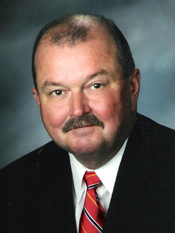Speaker Biographies
Jeffrion L. Aubry
New York State Assemblyman, 35th A.D. of Queens County
Jeffrion L. Aubry for the 35th A.D. of Queens County was elected to the New York State Assembly in a Special Election on January 3, 1992. He is the Chairman of the Assembly Standing Committee on Correction and member of the following committees: Ways and Means, Rules, Social Services and Governmental Employees. He also serves as a chairman of the Board of Justice Center, a national organization which provides technical assistance to states to develop data driven consensus supported criminal justice policies to reduce crime and decrease the cost of incarceration nationwide. Assemblyman Aubry is a member of the Council of State Governments and is a "Toll Fellow," a distinguished association of state legislators from across the country. Mr. Aubry is also a member of the New York State Association of Black and Puerto Rican Legislators, Inc., a member of the New York State Assembly/Senate Puerto Rican/Hispanic Task Force and a member of the New York State Black, Puerto Rican, Hispanic and Asian Legislative Caucus. As Chairman of the Committee on Correction, Assemblyman Aubry successfully championed legislation enacted in 2009 that significantly reformed the Rockefeller Drug Laws in New York State by returning discretion to judges to sentence drug addicted offenders to treatment as an alternative to prison, and led the fight to ensure that prisoners suffering from serious mental illness receive needed treatment and are not confined under inhumane conditions through the enactment of the Special Housing Unit Exclusion Law. He has developed a series of efforts to advance several national and statewide issues. He has also raised money to advance the cause of bone marrow donor identification in the state of New York and passed legislation to allow employees to receive sick time if they choose to become a donor.
In his capacity as Chairman of Correction, Assemblyman Aubry has sponsored and passed numerous pieces of legislation designed to improve the outcome of the criminal justice system, including the Prison Telephone Bill, Mental Health Services in Prison (SHU Bill), Significant Labor Legislation, and the Rockefeller Drug Law Reform.
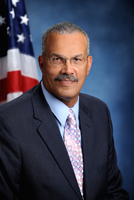
Jack Beck
Director, Prison Visiting Project at the Correctional Association of NY
Since 2004, Jack Beck has been the Director of the Prison Visiting Project at the Correctional Association of NY. The Correctional Association (CA) has statutory authority to inspect prisons in NY State and to report its findings to the legislature and public. At the CA, he has focused on monitoring general prison conditions, safety and violence in the prisons, prison medical and mental health care and treatment of inmates with substance abuse histories. Prior to the CA, he was a Senior Supervising Attorney at the Prisoners’ Right Project of the Legal Aid Society, where he worked for 23 years. He specialized in medical care issues, with particular focus on HIV/AIDS and Hepatitis C. He is a member of several statewide coalitions concerned with medical and mental health care in prisons that have been advocating for legislation to improve care of inmates. He has been a member of the NY Academy of Medicine IRB as the prisoner representative since 1999. From 2003-05, he was a member of the HHS Secretary’s Advisory Committee on Human Research Protections, Subcommittee on Subpart C: Prisoners Research.

Malcolm Bell
Former Attica Prosecutor
Malcolm Bell grew up in Brooklyn, served in the army, and practiced law in Manhattan. In 1973 he joined the office that Governor Rockefeller created to prosecute all crimes committed during the 1971 Attica uprising and its aftermath; in early 1974 he became chief assistant in that office. Convinced by December that while the prosecution of crimes by inmates was proceeding apace the prosecution of crimes by law officers was being willfully aborted, he resigned in protest. Unable to restore integrity to the prosecution through channels, he went public with his cover-up charges the following April, creating quite a fuss. The end result was not that officers were prosecuted but that inmates were absolved -- not the equal justice he sought. In 1985 he published The Turkey Shoot: Tracking the Attica Cover-up. A year later he became active in the sanctuary movement and continues to be involved with US-Latin America solidarity and anti-torture activities. He and his wife Nancy live in Vermont. He continues to write.

Robert Clark
Assistant Professor of Anthropology, Mansfield University
Robert L. Clark, Assistant Professor of Anthropology at Mansfield University of Pennsylvania, received his Ph.D and M.Phil in Anthropology from Yale University, and his BA from the University of New Hampshire. His dissertation fieldwork, which addressed inmates' means to self-empowerment through rehabilitation, was conducted in a maximum security prison near New Haven, Connecticut. During his time there, he began the Prison Education Project, which brought Yale faculty members and undergraduates to the prison as volunteer teachers and tutors. He is currently working on a project involving cultural identity reclamation and traditional jurisprudence among the indigenous peoples of southeast Alaska. He continues to look for ways to facilitate educational opportunities among prison inmates.

Jim Conway
Former Superintendent, Attica Correctional Facility
Jim Conway recently retired as Superintendant of the Attica Correctional Facility with over thirty-eight years of experience; the last eight years as Superintendent. He graduated from Attica High School in 1970 and then attended Genesee Community College for Police Science and Correction Administration. His career in corrections began in 1972 when he began at Attica Correctional Facility as a maintenance man. He became a Correction Officer in 1973, and moved up through the ranks of Sergeant, Lieutenant, Captain, Deputy Superintendent of Security, First Deputy Superintendent, and finally to the position of Superintendent at Attica Correctional in October 2002. Mr. Conway is a certified correction manager having completed the requirements of the Department's Management Training Program. He was designated by the Deputy Commissioner for Correctional Facilities as one of five "security experts" to assist the Attorney General's office in litigation involving the DOCS. He is a member of the American Correctional Association, the Correction and Youth Services Association, North American Association of Wardens and Superintendents, and is Vice-president of Wyoming County Community Hospital Foundation.
Gary Craig
Investigative Reporter, Rochester Democrat and Chronicle
Gary Craig is an investigative reporter with the Democrat and Chronicle in Rochester NY who focuses largely on criminal justice issues. He has won awards from the National Headliners Association and Investigative Reporters and Editors for investigative reporting. His series on conditions in New York's female prisons won the top investigative award from the Gannett newspaper chain, and he has also been honored by different organizations for coverage of wrongful convictions. He occasionally teaches in the criminal justice program at the Rochester Institute of Technology. He is married with two daughters.

Chuck Culhane
Erie County Prisoners' Rights Coalition
Chuck Culhane is a writer and poet, and active in the criminal justice arena. Since moving to Buffalo in 1994 to finish a master's program in the American Studies department at SUNY, he has grown to like the people of Buffalo and now thinks of the city as his home. Between 1995 and 2000 he taught two criminal justice courses on the North Campus, and then worked for a year and a half as a paralegal with Prisoners Legal Services of New York. He is now retired and serves on the boards of several local and statewide organizations, including Prisoners Are People Too, the New York State Defenders Association, and Paradise House (a halfway house for women), and coordinates a prison task force for the Western New York Peace Center. He lives in the heart of Buffalo with his 3 girl-cats, Inka, Dinka, and Rainbow.
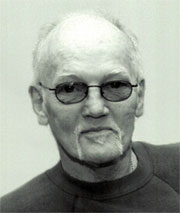
Soffiyah Elijah
Executive Director, Correctional Association of New York
Soffiyah Elijah is the executive director of the Correctional Association of New York. She has filled this position since March 2011 and is the first African-American to do so. She formerly served as Deputy Director of the Criminal Justice Institute (CJI) at Harvard Law School (HLS). Prior to his positions, Elijah was a clinical instructor at CJI. Under Elijah's leadership, HLS won the 2004 National Trial Advocacy Competition, the same Competition at which HLS placed second in 2003. Ms. Elijah practiced law through various avenues before transitioning into the clinical practice of academia. She was a Supervising Attorney at the Neighborhood Defender Service of Harlem (NDS), where she defended indigent members of the Harlem, New York community. Before joining NDS, Ms. Elijah was in private practice, specializing in criminal defense and family law. She also worked as a Staff Attorney for the Juvenile Rights Division of the Legal Aid Society.With 20 years in the legal profession, the scope of her interests and scholarship is diverse. Elijah has authored several articles and publications based on her research of the U.S. criminal justice and prison systems. She has represented numerous political prisoners and social activists over the past 22 years. And, her travels to Cuba over the past 17 years have enabled her to conduct extensive research on the country's legal system, with a focus on its approach to criminal justice issues. In 2001, Elijah was awarded a Revson Fellowship at Columbia University to continue research in her areas of interest. Elijah's current research and scholarship focuses on criminal justice issues and the prison industrial complex. Elijah earned her B.A. from Cornell University and her J.D. from Wayne State University Law School.

Arthur O. Eve
Former New York State Assemblyman
Arthur O. Eve (Democrat, Buffalo) was elected to the New York State Assembly in 1966. In 1968 Assemblyman Eve held up construction on the University of Buffalo Amherst Campus until the State and unions agreed to develop a program that would provide access for minorities into the construction industry. As a result, the Buffalo Hometown Plan and the Build Skills Assessment Center trained hundreds of minorities in the construction crafts. During the 1971 Attica uprising, Assemblyman Eve spearheaded a committee of public officials who attempted to resolve the conflict between the prison guards and inmates. Deputy Speaker Eve's legislative record is one of extensive sponsorship and support representing a wide range of issues including economic development, education, job training and development, social services, crime prevention and parole reform, day care and housing. Eve is a member of the Committee on Aging, Senior Member of both the Committees on Rules and Ways and Means and sits on the Corporations Committee. During his career of public service, many believe that Deputy Speaker Eve has done more to initiate opportunities for minorities and the economically disadvantaged in the field of educational opportunity, undergraduate and graduate education, medical degrees, pre-natal, day care and infant care than any other state legislator in the nation. Deputy Speaker Eve is a graduate of West Virginia State University; a life member of the NAACP; founder and former Chairman of the Board of the Northern Region Black Political Caucus whose purpose is to promote political education and participation in the African-American community; and former Chairman of the New York State Chapter of the National Rainbow Coalition. He is the recipient of numerous awards and citations from an array of local, state and national organizations.

Charles Patrick Ewing
Professor, University at Buffalo Law School
Charles Patrick Ewing, a forensic psychologist and attorney, is SUNY Distinguished Service Professor at University at Buffalo Law School, where he has been a member of the law faculty since 1983. Ewing received his Ph.D. from Cornell University and his law degree with honors from Harvard Law School. He completed an internship in clinical psychology as part of his doctoral program and was a Post-Doctoral Fellow at Yale University in the Institution for Social and Policy Studies. Prior to joining the faculty at UB Law School, he taught in the Psychology Department at Mansfield University and in the Legal Studies program at Brandeis University. Ewing is the author or co-author of ten books. He is also author or co-author of approximately seventy other publications – most of which deal with issues related to violent behavior, dangerousness, expert testimony and other issues in forensic psychology. Ewing is Editor of the journal, Behavioral Sciences and the Law. He is an elected Fellow of the American Psychological Association, and a Diplomate in Forensic Psychology of the American Board of Forensic Psychology (ABFP) and American Board of Professional Psychology. In 2008, he began a six-year term as an elected member of the Board of Directors of ABFP.
Anthony P. Farley
James Campbell Matthews Distinguished Professor of Jurisprudence, Albany Law School
Professor Farley specializes in Constitutional Law, Criminal Procedure and Legal Theory. Prof. Farley was a tenured member of the Boston College Law School faculty, where he taught for sixteen years prior to joining his wife, Associate Prof. Maria Grahn-Farley, on the Albany Law School faculty. Prior to entering academia, Prof. Farley served as an Assistant United States Attorney with the Office of the United States Attorney for the District of Columbia. Prior to his time as a federal prosecutor, Prof. Farley practiced law as a Corporate/Securities Associate with Shearman & Sterling in NYC. Farley is a member of the Society of American Law Teachers and previously served as a member of its Board of Governors. He is a member of the Lawyers Committee for Civil Rights and a previously served as a member of its Board of Directors. He is a member of the Board of Directors of the Center for Public Representation. He is also a member of the American Philosophical Association. In addition to holding the Haywood Burns Chair in Civil Rights at CUNY School of Law in 2006-2007, Farley has been Visiting Professor at the Northeastern University School of Law in Boston, the Lacanian School of Psychoanalysis in Berkeley, and the Golden Gate University School of Law in San Francisco.
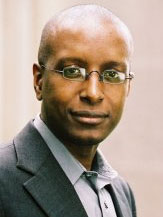
Brian Fischer
Commissioner, New York State Department of Corrections and Community Supervision
Brian Fischer was appointed Acting Commissioner of the New York State Department of Correctional Services effective January 1, 2007, was confirmed as Commissioner by the state Senate on March 12, 2007, and with the passage of the 2011-12 State Budget, is now Commissioner of the Department of Corrections and Community Supervision. Mr. Fischer began his career with the New York State Narcotic Addiction Control Commission in 1968, working as an Aftercare (Parole) Officer. In 1975, he transferred into the Department of Correctional Services with the title of Assistant Director, Drug Treatment Center. In 1991 he was appointed Superintendent of the Queensboro Correctional Facility and Supervising Superintendent for the New York City region. He coordinated the development of the agency's work release program and the conversion of Queensboro into a pre-release, re-entry facility. Mr. Fischer was appointed Superintendent of the Sing Sing Correctional Facility in 2000 and continued to serve as the New York City region's Supervising Superintendent. While at Sing Sing he implemented, along with the Office of Mental Health, a comprehensive transitional pre-release program for inmates with serious mental health needs. In addition, he championed several non-traditional programs, some of which have become models for other prisons: college, theater, and domestic violence and parenting skills for men. Mr. Fischer has been an adjunct professor at both Pace University and John Jay College of Criminal Justice. He is also a member of the American Correctional Association, the North American Association of Wardens and Superintendents, the New York Corrections and Youth Services Association and, until his appointment as Commissioner, the New York State Association of Correctional Facility Superintendents. Commissioner Fischer sits on the board of two non-profit organizations: Hudson Link for Higher Education, a program that provides college education degrees to individuals incarcerated in prison, and Puppies Behind Bars, a program that allows inmates to raise puppies that are then trained to be Seeing Eye dogs and, most recently, as special service dogs for disabled veterans. Commissioner Fischer also sits on the Standards Committee of the American Correctional Association, a national accreditation body that sets performance standards for US prisons and jails. He is on the Executive Board of the Association of State Correctional Administrators, which is made up of individuals who run state and local prison and jail systems across the country, and a member of the Criminal Justice Advisory Board of St. Thomas Aquinas College.

Flores A. Forbes
Associate VP, Strategic Policy and Program Implementation, Columbia University
Flores A. Forbes coordinates economic development opportunities and entrepreneurial activities with local organizations on behalf of the Office of Government and Community Affairs. He maintains relationships with community-based organizations, government officials, corporations, minority entrepreneurs and developers, and others. Currently, Forbes' work is largely focused on activities related to the University's proposed expansion into Manhattanville and with the Columbia Harlem Small Business Development Center, a program of the US Small Business Administration that provides technical assistance to small businesses and non-profits, as well as workforce development for youth and veterans.
Forbes last served as Chief Strategic Officer for the Abyssinian Development Corporation. Prior to his tenure at Abyssinian, Forbes worked for the Office of the Manhattan Borough President, where he served first as Deputy Director of Land Use Housing and Development and then as Director of Borough President Fields' Northern Manhattan Office. Flores has also written extensively; his work includes a study of his life as a radical in the 1970's.
Forbes holds an undergraduate degree from San Francisco State University. He received a Masters in Urban Planning from New York University's Robert F. Wagner Graduate School of Public Service and was a Revson Fellow at Columbia.

Elizabeth Gaynes
Executive Director, Osborne Association
Elizabeth Gaynes began her legal career as a criminal defense attorney, working at a Buffalo law firm involved in representing people incarcerated at Attica during the 1971 prison rebellion. She later joined Albany Law School Legal Assistance Project, a clinical program that represented men at four state prisons on civil legal matters, a project that became the Albany office of Prisoners Legal Services of New York. Prior to becoming the Executive Director of the Osborne Association, she was an Associate at the Pretrial Services Resource Center (now Pretrial Justice Institute) in Washington DC, a national organization dedicated to ensuring informed pretrial decision making for safe communities, including bail reform and diversion from prosecution. Under her leadership over the last 26 years, the Osborne Association has grown from a two-person staff to one of the largest multi-service criminal justice organizations in the country. In 1985, Elizabeth Gaynes spearheaded the creation of FamilyWorks, the longest running comprehensive parenting program in a men’s state prison. Working in collaboration with New York State and City criminal justice, child welfare, and health agencies, Osborne operates some of the country’s most innovative and effective services for incarcerated individuals and their children and families.

Nan L. Haynes
Lecturer in Law, University at Buffalo Law School
Nan L. Haynes is an attorney and a member of the faculty at UB Law School. She became an advocate for inmates confined to the Erie County Holding Center in 1995 when she represented the plaintiffs in a class action challenging conditions at the jail. Since then she has worked to keep the issue of conditions at the jail alive by writing opinion pieces for the Buffalo News and by representing inmates in civil rights claims against the County. Currently she represents an inmate who is fighting to force the County to release to the public a video recording of a beating he suffered at the hands of Erie County Sheriff's Deputies. Haynes sits on the Erie County Community Corrections Advisory Board, a panel created by the Erie County Legislature to provide advice for the improvement of programs at the Holding Center and the Erie County Correctional Facility.

Regina Kunzel
Professor of History, University of Minnesota
Regina Kunzel is a professor of history at the University of Minnesota. She is also affiliated with the Gender, Women, and sexuality Studies Department and the American Studies Department. She specializes in Modern U.S. history, the History of Sexuality, Gender and Women's History, and History of the Prison and Incarceration. She has published various books and journal articles including, Criminal Intimacy: Prison and the Uneven History of Modern American Sexuality (2008). Ms. Kunzel is the co-editor of Gender and History and Sexuality Studies, a book series published by Temple University Press. She has won numerous awards, particularly for her literary works focusing on LGBT studies.

Doran Larson
Professor of English, Hamilton College
Doran Larson is Professor of English & Creative Writing at Hamilton College. Since 2006 he has led The Attica Writer's Workshop (AWW), inside Attica Correctional Facility. He is the founder of the Attica-Genesee Teaching Project, which began delivering college-credit courses inside Attica in January 2011. He is now working to create a no-tuition college-in-prison model that can be reproduced across New York State and the nation at no cost to taxpayers. Larson's essays on prison writing, prison teaching, and related issues have appeared in Salmagundi, College Literature, English Language Notes, Radical Teacher, and The Chronicle of Higher Education. He is the editor of a forthcoming special issue of Studies in Law, Politics, and Society, titled "The Beautiful Prison," in which prison writers and academics imagine what the American prison would look like if transformed into a truly constructive institution. Larson is currently editing a collection of essays about the prison by American prisoners, titled Fourth City: The Prison in America. At Hamilton College Doran Larson teaches courses on American and global prison writing.
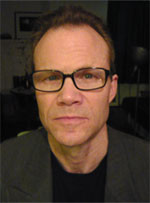
Theresa Lynch
Historian, University of New Hampshire Manchester
Theresa Lynch, PhD, is an historian who specializes in the history of the 20th century United States. With degrees from Colby College (A.B.) and Harvard University (Ed.M.), and a doctorate in history from the University of New Hampshire, she is currently at work on a book entitled Attica: A Media Event. Dr. Lynch also teaches at the University of New Hampshire Manchester, UNH's urban college that serves a mix of traditional-age and older commuter students. She teaches courses on prisons, crime and punishment, war reporting, Nixon and Watergate, and other themes in U.S. social, political, cultural, and media history.
Dee Quinn Miller
Director, Forgotten Victims of Attica
Dee Quinn Miller is the daughter of William E. Quinn, a New York State Correction Officer who died of injuries sustained during the Attica Riot. She serves as Director of the Forgotten Victims of Attica, which is an advocacy group for state employees who were held hostage during the Attica Riot. The group which was formed in 1999 lobbied the state for 5 years resulting in a $12 million settlement in 2004. She currently advocates for several ongoing prison issues and speaks around the country on corrections issues as related to the Attica Riot.
She also serves as Director of Development at Crossroads House, a comfort care home that serves terminally ill residents of Genesee and Wyoming Counties. Dee also sits on several boards related to the welfare of the aging.
Dee has a BS degree from University of New York at Buffalo. She is the wife of David Miller and proud mother of Aubrey and Cassidy.
Teresa A. Miller
Professor, University at Buffalo Law School
Teri Miller graduated from Harvard Law School in 1986. After serving as a research and writing instructor at the University of Miami School of Law for two years, Miller pursued a Master's Degree at the University of Wisconsin Law School as a Hastie Fellow. Returning to Miami to clerk for the Hon. William M. Hoeveler in the Southern District of Florida, Miller was involved in a wide variety of federal cases, including the criminal trial of Manuel Noriega. After practicing in Florida in the areas of securities litigation and accountant's liability, Miller joined the law faculty at the University at Buffalo in 1995.
Miller researches and writes about the growing use of immigration law to effect criminal law enforcement outcomes. She regularly travels throughout New York State, evaluating conditions at state prisons on behalf of the Correctional Association of New York.
As chair of the law school Technology and Communications Committee, Miller has been at the forefront of applying digital video technology in the classroom, as well as in scholarship. In 2008, Miller produced a 24-minute film, "Encountering Attica." The film tracked three UB Law students who agreed to meet with inmates serving life sentences at Attica Prison throughout their first year of law school as a way of better understanding how law operates in an applied, institutional context.
Miller's recent creative activity includes producing and directing a documentary film challenging the notion that inmates and their families alone are negatively impacted by long-term incarceration. Her documentary explores how correctional officers, civilian employees and administrators "do time," including how they adjust to the maximum-security setting in ways not unlike those of inmates. This adjustment includes functioning in a racialized sphere with huge disparities in power, and living with the legacy of the Attica Prison Uprising some thirty-eight years after the event irreversibly altered the landscape of contemporary corrections.

Karen Murtagh-Monks
Executive Director, Prisoners' Legal Services of New York (PLS)
Karen L. Murtagh is the Executive Director Prisoners' Legal Services of New York (PLS), a not-for-profit legal services organization that was founded in 1976 to provide civil legal services to indigent inmates in New York State correctional facilities. She is a graduate of Clarkson University and Albany Law School. She is admitted to practice law in New York State, all Federal District Courts of New York and the U.S. Supreme Court. She has litigated issues concerning prisoners' due process rights at disciplinary hearings, prison conditions, deliberate indifference, the First Amendment and the Prison Litigation Reform Act (PLRA). She has tried cases in both the Court of Claims and Federal Court and has argued numerous cases before New York State courts including the New York Court of Appeals and as amicus before the U.S. Supreme Court where she prevailed in challenging the constitutionality of a New York State statute that prohibited prisoners from filing federal 1983 actions in state court. She has worked as a staff attorney, managing attorney, Director of Litigation and Deputy Director for PLS. She has provided extensive training to staff on administrative and Article 78 practice and how to litigate excessive force cases in federal court. She also served on the faculty of Albany Law School as an adjunct professor where she established a clinic program for prisoners' rights and taught Civil Procedure, Administrative Law, Constitutional Law, Court of Claims Practice, and Litigation Skills. She is a member of the New York State Bar Association and sits on the NYS Bar Association's Civil Rights Committee. She is a Board member of the New York State Defenders Association. She is also an advisor to the NYSDA Special Committee on Immigration Representation.
Michael Mushlin
Professor, Pace Law School
Professor Michael B. Mushlin teaches Civil Procedure, Evidence, and Prisoners' Rights. He is the author of law review articles on a variety of subjects involving evidence, federal jurisdiction, civil procedure, children's rights, and prisoners' rights. He is the author of Rights of Prisoners (4th ed. 2009) published by West, a four volume treatise. He also is the co-author of New York Evidence with Objections (NITA 2008) and chapters in books and encyclopedias. He was elected and currently serves as a member of the Executive Committee of the New York City Bar, and was elected Secretary of the Executive Committee. He is Vice Chair of the Correctional Association of New York. He is a member of the Task Force on the Legal Status of Prisoners of the American Bar Association, and is co-chair of the Subcommittee on Implementation of the ABA Resolution on Prison Oversight. He was appointed by the Chief Administrative Judge of the State of New York to the Advisory Committee on Criminal Law and Procedure. Professor Mushlin is the former Associate Dean for Academic Affairs, Chair of the Committee on Corrections of the New York City Bar, and former Chair of the Board of the Correctional Association and the Osborne Association. He is a member of the Editorial Board of the Correctional Law Reporter. He also served on the boards of Children's Rights Inc. and Pace Law School's John Jay Legal Services Inc. Professor Mushlin was appointed Charles A. Frueauff Research Professor of Law during the 1991-1992 academic year, and James D. Hopkins Chair in Law during the 2005-2007 academic years at Pace Law School. He received his J.D. cum laude, from Northwestern University School of Law. Professor Mushlin practiced as a public interest and civil rights lawyer for 15 years as staff attorney with Harlem Assertion of Rights, Inc., as staff attorney and Project Director of the Prisoners' Rights Project of the Legal Aid Society, and as Associate Director of the Children's Rights Project of the American Civil Liberties Union.
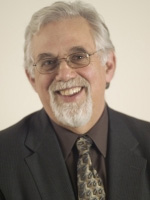
Athena Mutua
Professor, University at Buffalo Law School
Athena Mutua is a Professor of Law at the University at Buffalo Law School. She received a B.A. from Earlham College, a J.D. and M.A. from The American University, and an LL.M. from Harvard Law School. She writes in the areas of critical race and feminist legal theory. Her work includes the edited collection entitled, Progressive Black Masculinities (Routledge, 2006); and articles entitled, Restoring Justice to Civil Rights Movement Activists: New Historiography and the 'Long Civil Rights Era' (2009); "The Rise, Development, and Future Directions of Critical Race Theory", 84 Denver University Law Review 329 (2006); and Gender Equality and Women's Solidarity across Religious, Ethnic, and Class Difference in the Kenya Constitutional Review Process, 13 William and Mary Journal of Women and Law 1 (2006).
Joshua Page
Assistant Professor of Sociology, University of Minnesota
Joshua Page is an assistant professor of sociology at the University of Minnesota, where he specializes in crime, law, deviance, and punishment; labor and unionization; political sociology; qualitative research methods; and social theory. He obtained his PhD in 2007 at the University of Berkeley. His current research includes The Minnesota Juvenile Justice Transitions Project, which analyzes the transition of young offenders from Minnesota juvenile justice institutions back into their communities, and The Minnesota Correctional Officer Survey Project, which analyzes the living and working conditions in adult state prisons, as well as correctional officers' attitudes and beliefs about correctional policies and practices. Mr. Page has published The 'Toughest Beat': Politics, Punishment, and the Prison Officers' Union in California (2011) and various journal articles.
Stephanie Phillips
Professor, University at Buffalo Law School
Stephanie L. Phillips is Professor of Law at the University at Buffalo Law School. She received her J.D. from Harvard Law School in 1981, and is presently pursuing a Master's in Theology at Colgate Rochester Crozer Divinity School. A founding member of the Workshop on Critical Race Theory, Professor Phillips has collaborated with her colleague, Professor Athena Mutua, to create and teach Critical Race Theory seminars focusing on the social construction of race and on intersections between race, gender, and sexuality. She and Professor Mutua are presently engaged in a multi-year teaching project in African American legal history.
Gabrielle Prisco
Director of the Juvenile Justice Project (JJP)
Gabrielle Prisco is the Director of the Juvenile Justice Project (JJP) at the Correctional Association of New York. The Juvenile Justice Project is committed to reorienting New York's juvenile justice system away from a one-size fits all punitive approach and toward a model that emphasizes community-based prevention and alternatives to jail and prison. JJP also runs Safe Passages, a youth leadership program for LGBTQ identified youth and coordinates the Juvenile Justice Coalition, a statewide juvenile justice reform coalition. Previously, Gabrielle was the Project Manager of the Data Collection and Policy Project at the Legal Aid Society's Juvenile Rights Practice, creating and running a juvenile justice data collection system. At Legal Aid, Gabrielle also served as an attorney for children in child abuse and neglect cases and trained staff on LGBTQ issues. Gabrielle was the William J. Brennan Fellow in the ACLU's National Legal Department, working on state and federal national security litigation and First Amendment litigation, including Supreme Court litigation. Gabrielle was also the Bell Fellow at NYU School of Law, working with Professor Derrick Bell to teach constitutional law and engaging in scholarship on race and racism in American law, including writing for Professor Bell's text Race, Racism and American Law (5th ed.). Gabrielle holds a J.D. cum laude from NYU School of Law where she was an Arthur Garfield Hays Fellow, an M.A. from the University of Alabama where she was the University's Assistant Debate Coach, and a B.S. magna cum laude from Vanderbilt University where she was a Posse Scholar.

Michael Smith
Former New York State Correction Officer
Michael Smith is a former New York State Correction Officer. He was employed at Attica prison during a riot there in 1971, and held hostage for the duration of the four-day siege, which ended with the bloody retaking of the facility, by force.
Michael is a spokesperson for the group FVOA. Forgotten Victims of Attica. The Forgotten Victims of Attica are employees of the New York State Department of Corrections who were slain or injured while held hostage in the Attica Prison Riot, and their families. The purpose of the Forgotten Victims of Attica is to bring about public awareness of the truth of events leading up to and during the riot of 1971, continuing up to the present, and to expose the State's political manipulation and criminal acts during and subsequent to the riot.
Michael and his wife Sharon have four children and live in Western New York.

Henry Louis Taylor, Jr.
Director, Center for Urban Studies, University at Buffalo
Professor Henry Louis Taylor, Jr., is one of the nation's leading authorities on distressed urban communities and inner city development. A historian and urban planner, this internationally known scholar is a full professor in the Department of Urban and Regional Planning at the University at Buffalo. He is coordinator of the Department's Community Development and Urban Management Specialization and is the founding director of the University at Buffalo Center for Urban Studies (CENTER), a research, neighborhood planning and community development institute that focuses on the regeneration of distressed communities. Taylor's research focuses on African American urban history, Cuban Studies, university-community relations, and distressed urban communities. Taylor has written and edited five books and has published more than 80 articles, book reviews, commentaries, and technical reports on urban and regional planning. His most recent book, Inside El Barrio: A Bottom-Up View of Neighborhood Life in Castro's Cuba, has been published in Korean. Taylor has appeared on ABC Nightline and has been quoted in numerous national publications and has made presentations at leading universities. He has received numerous awards for his research and neighborhood planning activities. In 2001, along with Sam Cole, he won the Fannie Mae Foundation Award for the best practice base paper at the American Collegiate Schools of Planning Conference, and in 2005 he received the Distinguished Leadership Professional Planner Award from the American Planning Association, New York Upstate Chapter, and Business First twice named him "One of the 100 Most Influential Leaders in Western New York." In 2008, the East Side Neighborhood Transformation Project, which Taylor directs, won the International Community Development Society Program of the Year Award. TIME Magazine selected his quote on "Americans lose sight of Martin Luther King, Jr. dream" as it's Quote of the Day and published it in the February 4, 2008 edition of TIME. In 2009, Buffalo Branch of the Small Business Administration named Taylor, the Minority Small Business Champion of the Year for his role in promoting small business development among minorities and women in the Buffalo metropolitan Region. Taylor currently is the planning coordinator for the HUD Buffalo Municipal Housing Authority's Choice Neighborhood Planning Initiative, and he is also writing a book on neighborhood development and city building in Cincinnati, Ohio, 1900 to 1980.

Thomas Terrizzi
Prison litigation practitioner
Thomas Terrizzi is a civil rights litigator who was inspired to work for prisoners' rights by the rebellion at Attica, which occurred while he was in law school at the University of Wisconsin-Madison. Having graduated from Cornell University with an undergraduate degree in labor relations, he was and continues to be interested in the connection between prison and labor issues. Returning to New York, he began work as staff attorney with Neighborhood Legal Services where he co-counseled a lawsuit by prisoners seeking to form a labor organization to improve working conditions in prison industries. When Prisoners’ Legal Services of New York was created, he joined as a staff attorney and worked with PLSNY as a Managing Attorney, the Associate Director and its Executive Director. During that 29 year stint he worked on litigation involving challenges to conditions in solitary confinement and protective custody units, particularly the negative effects of prolong restrictive confinement on those with mental illness, damage actions for excessive use of force by prison staff, injunctive cases to curtail abusive strip search procedures, actions to overturn unconstitutional prison disciplinary hearings and to improve procedural protections at those hearings for those with mental illness, cases seeking improvements to prison grievance procedures and policies and protections for grievance representatives, insuring religious freedom in prisons for Muslims, Native Americans and Buddhists, protecting the parental rights of prisoners, and cases to improve medical care system in prisons. He started and co-wrote Pro Se, a PLSNY newsletter for inmates proceeding on their own. He has served on numerous boards, commissions and bar association committees in the area of civil rights and has represented clients pro bono on voting rights cases and the defense of criminal charges arising out of public protests. For the past five years he has been in private practice in Buffalo focusing on federal and state court litigation throughout the state representing people in and out of prison on claims of unlawful confinement, excessive use of force, unconstitutional disciplinary hearings and medical negligence.
Heather Ann Thompson
Professor of History, Temple University
Dr. Heather Ann Thompson (Ph.D., Princeton University, Associate Professor of History at Temple University) is writing the first comprehensive history of the Attica Prison Rebellion of 1971 and its legacy. To recover this story Thompson has spent the last seven years immersed in legal, state, federal, prison, and personal records related to the Attica uprising and its aftermath (some never-before-seen) located in archives, governmental institutions, and various individual collections around the country and the world. With these varied and rich resources she seeks to recapture the full, dramatic, gripping, multi-faceted, and complex story that was Attica, and hopes to underscore for readers everywhere this event's historical as well as contemporary importance.
While completing this history of the Attica Uprising, Thompson has received several research fellowships and awards including the Soros Justice Fellowship from the Open Society Institute. She is also the author of Whose Detroit: Politics, Labor and Race in a Modern American City (Cornell University Press: 2001) and has recently published an edited collection, Speaking Out: Protest and Activism in the 1960s and 1970s (Prentice Hall, 2009) as well as several chapters in books on prison activism during the 1960s and 1970s. Thompson has also written numerous scholarly articles on the current crisis of mass incarceration including: "Why Mass Incarceration Matters: Rethinking Crisis, Decline and Transformation in Postwar American History" (Journal of American History, December 2010), "Downsizing the Carceral State: The Policy Implications of Prisoner Guard Unions" (Criminology and Public Policy, forthcoming), "Rethinking Working Class Struggle through the Lens of the Carceral State: Toward a Labor History of Inmates and Guards (Labor: Working Class Studies of the Americas, forthcoming), and "Criminalizing the Kids: Rethinking Poor Performance in America's Public Schools." (Dissent, forthcoming).


